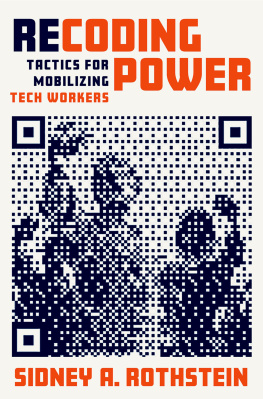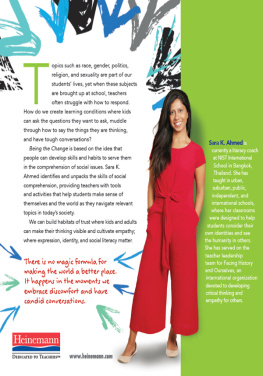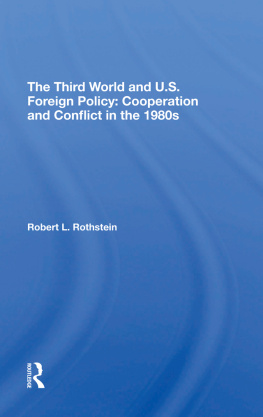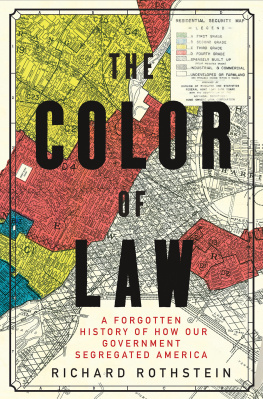Dan Rothstein - Make Just One Change: Teach Students to Ask Their Own Questions
Here you can read online Dan Rothstein - Make Just One Change: Teach Students to Ask Their Own Questions full text of the book (entire story) in english for free. Download pdf and epub, get meaning, cover and reviews about this ebook. year: 2011, publisher: INscribe Digital, genre: Politics. Description of the work, (preface) as well as reviews are available. Best literature library LitArk.com created for fans of good reading and offers a wide selection of genres:
Romance novel
Science fiction
Adventure
Detective
Science
History
Home and family
Prose
Art
Politics
Computer
Non-fiction
Religion
Business
Children
Humor
Choose a favorite category and find really read worthwhile books. Enjoy immersion in the world of imagination, feel the emotions of the characters or learn something new for yourself, make an fascinating discovery.

- Book:Make Just One Change: Teach Students to Ask Their Own Questions
- Author:
- Publisher:INscribe Digital
- Genre:
- Year:2011
- Rating:4 / 5
- Favourites:Add to favourites
- Your mark:
- 80
- 1
- 2
- 3
- 4
- 5
Make Just One Change: Teach Students to Ask Their Own Questions: summary, description and annotation
We offer to read an annotation, description, summary or preface (depends on what the author of the book "Make Just One Change: Teach Students to Ask Their Own Questions" wrote himself). If you haven't found the necessary information about the book — write in the comments, we will try to find it.
Dan Rothstein: author's other books
Who wrote Make Just One Change: Teach Students to Ask Their Own Questions? Find out the surname, the name of the author of the book and a list of all author's works by series.
Make Just One Change: Teach Students to Ask Their Own Questions — read online for free the complete book (whole text) full work
Below is the text of the book, divided by pages. System saving the place of the last page read, allows you to conveniently read the book "Make Just One Change: Teach Students to Ask Their Own Questions" online for free, without having to search again every time where you left off. Put a bookmark, and you can go to the page where you finished reading at any time.
Font size:
Interval:
Bookmark:
Make Just One Change
Make Just One Change
Teach Students to Ask Their Own Questions
DAN ROTHSTEIN
LUZ SANTANA
Harvard Education Press
Cambridge, Massachusetts
Copyright 2011 by the President and Fellows of Harvard College
All rights reserved. No part of this publication may be reproduced or transmitted in any form or by any means, electronic or mechanical, including photocopy, recording, or any information storage and retrieval systems, without permission in writing from the publisher.
Library of Congress Control Number 2011928627
Paperback ISBN: 978-1-61250-099-7
Library Edition ISBN: 978-1-61250-100-0
ISBN (epub edition): 978-1-61250-454-4
Published by Harvard Education Press,
an imprint of the Harvard Education Publishing Group
Harvard Education Press
8 Story Street
Cambridge, MA 02138
Cover Design: Sarah Henderson
The typefaces used in this book are Minion Pro and Myriad Pro.
To all the people in communities
across the United States and beyond
from whom we have learned so much
and, going forward, to all those from
whom we expect to learn even more.
Contents
by Wendy D. Puriefoy
Foreword
Every generation of Americans has wrestled with the challenge of educating Americas children. By now, most Americans acknowledge the need to educate all children to a high standard. Given the social, political, and economic pressures such as globalization, rapidly changing demographics, immigration, and the interplay between domestic and international policy, our students must now more than ever grasp high levels of knowledge and skills to gain entry into the full economic and civic benefits of our democratic way of life.
In my work with citizens around the country who are laboring to improve education for all children, I see a hunger for two things: an inspiring, bold vision of schools where children flourish, and practical tools that can help make that possible. Thats a difficult combination to come by.
In Make Just One Change, Dan Rothstein and Luz Santana provide us with a rare example of that combinationan inspiring vision of education at its best and an extraordinarily clear, low-tech, practical intellectual tool for turning that vision into reality. Their basic argument is very simple: we should be teaching the skill of question formulation to all students. We should do it to promote excellence and we should do it to promote equity. Both are achievable.
This point seems almost too obvious. The skill of question formulationa thinking ability with universal relevancecan make all learning possible. In the many examples presented in these pages, the authors show how the ability to ask questions also leads to new ideas, new inventions, and better solutions. We can also see that learning how to ask questions also leads to improved learning outcomes, greater student engagement, and more ownership of the learning process. This book asks teachers to make one simple change in their regular practice; to deliberately teach students how to ask their own questions. Perhaps its greatest contribution is that it takes this challenging idea and shows not only why it should be done but exactly how it can be done. It offers a step-by-step processthe Question Formulation Techniquethat has been developed through years of testing, practice and refinement.
The examples in Make Just One Change can help us understand how schools can increase student achievement, build new relationships between learner and teacher, and open new avenues for dialogue and inquiry. It can give us hope that what happens in a classroom where students are learning to ask questions can truly be a building block for creating productive relationships that benefit our entire society and our democracy.
It is not surprising that the Right Question Institute created this new technique. The authors, with their combination of complementary skills, experiences and perspectives, have been tilling this field of improving education and society by working with parents, students, teachers, and community residents around the country for the past two decades. Rothstein has a doctorate in education from Harvard, but has committed himself to learning from people far from power and with limited education. Santana, who travelled a path that included emigrating from Puerto Rico to moving from being a welfare recipient to working on a factory floor to getting a masters degree, has committed herself to teaching others how to help themselves instead of becoming the spokesperson on their behalf. This book is not their first breakthrough, but is a landmarka bringing together of years of research and experience into a methodology for applying their groundbreaking thought and technique.
There are several reasons to read this book. One is it so strongly inspires hopesomething desperately needed in a world where we face so many overwhelming challenges. Hope is what keeps us looking for ways to solve these challengesto bring about peace in the world or to end the stranglehold of poverty. We hope to find a new path, a Northwest passage, another way to solve a problem. I would posit that hope lives in the mind and grows in thoughtful dialogue with itself and others. And that sometimes springs from figuring out what questions we need to ask. This book, therefore, gives us a way not only for students to learn how to generate questions, but also, in the process, gives us hope and strength for moving forward in the hard work of making education work better for all students. All students will benefit, including those who already excel at answering questions, but not necessarily asking them.
Beyond helping those who are currently deemed successful, the Question Formulation Technique is a powerful tool that addresses the urgent need to improve education for students in struggling schools and districts. We must invest in the capacity of all students to think more clearly and more deeply, to learn more, and to feel greater ownership of their own learning. These are the skills and habits of mind of successful learners and they should not be restricted to students in elite institutions. This book can help make the case that deliberately teaching the skill of question formulation can also lead to the goal of greater academic achievement as set by the Common Core State Standards.
Make Just One Change allows students to discover just how powerful it is to ask questions as a way to guide their own learning. The inspiring examples of students and teachers in this book push me to ask my own questions: Why wouldnt we teach an essential, powerful, important, and robust skill to all students? Why would we want to keep it from them? The strength of the nation is tied to the intellectual competency and capacity of our people. If we commit to a vision of all students learning to ask their own questions, and, by doing so, becoming more self-directed and successful learners, we now have a book that shows us how to turn that vision into reality.
Wendy D. Puriefoy
President
Public Education Network
INTRODUCTION
Why Didnt I Learn This in School?
This book makes two simple arguments:
All students should learn how to formulate their own questions.
All teachers can easily teach this skill as part of their regular practice.
The inspiration for the first argument came from an unusual source. Parents in the low-income community of Lawrence, Massachusetts, with whom we were working twenty years ago told us that they did not participate in their childrens education nor go to their childrens schools because they didnt even know what to ask.
Next pageFont size:
Interval:
Bookmark:
Similar books «Make Just One Change: Teach Students to Ask Their Own Questions»
Look at similar books to Make Just One Change: Teach Students to Ask Their Own Questions. We have selected literature similar in name and meaning in the hope of providing readers with more options to find new, interesting, not yet read works.
Discussion, reviews of the book Make Just One Change: Teach Students to Ask Their Own Questions and just readers' own opinions. Leave your comments, write what you think about the work, its meaning or the main characters. Specify what exactly you liked and what you didn't like, and why you think so.







